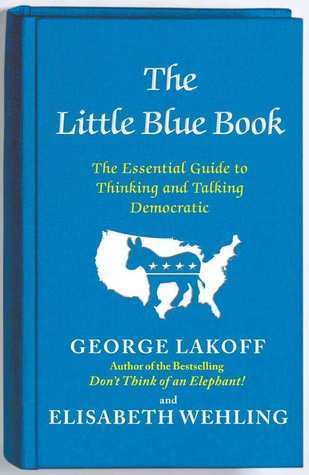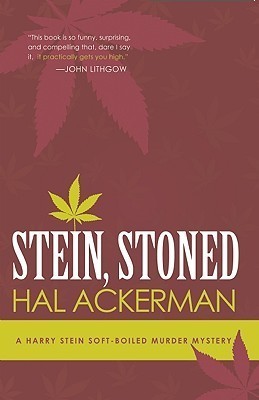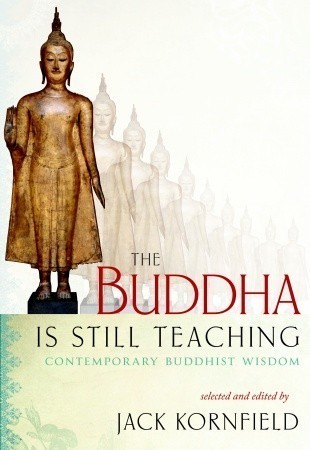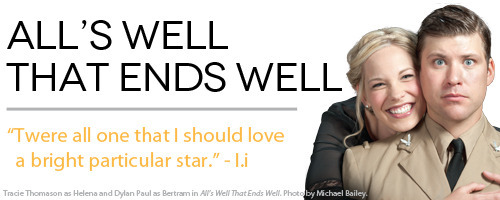Clifford Garstang's Blog, page 76
July 12, 2013
Theater: All’s Well That Ends Well at the American Shakespeare Center
This production is nearly perfect, with excellent performances from every member of the cast. I don’t remember when the American Shakespeare Center last performed this one, but everything about it seemed fresh to me, from the costumes, to the music, to the characterizations. It’s a so-called “problem play,” but it was extremely entertaining.
Helena, played by Tracie Thomason, the ward of Countess Rosillion, played by Allison Glenzer, is in love with the Countess’s son, Bertram, played by Dylan Paul. When Bertram goes off to the French Court to make a name for himself, Helena finds a reason to go, too. By curing the King of his “fistula,” she earns the right to choose a husband from among the nobles at Court. She picks Bertram. But he’s not happy about this because Helena, the daughter of a physician, is of a lower class.
This doesn’t say much for Bertram, who reveals himself to be a jerk in other ways. But Helena’s not through with him . . .
Paul and Thomason were terrific as Bertram and Helena, and it’s an interesting pairing because they also play Romeo and Juliet this season. In that play, he’s all over her. In this one, he’s just not that into her. It makes for a nice dynamic for those of us who’ve seen both productions.
In this play, John Harrell is wonderful as the King and Rene Thornton Jr. is very funny as Lafew, as is Greg Phelps as Lavatch the Fool.
I’ve now seen all three shows in the Summer Season, and they’re all fantastic. I can’t pick a favorite, so I’ll just have to see them all again.
July 9, 2013
2013 Reading: The Little Blue Book by George Lakoff and Elisabeth Wehling
 The Little Blue Book: The Essential Guide to Thinking and Talking Democratic by George Lakoff and Elisabeth Wehling
The Little Blue Book: The Essential Guide to Thinking and Talking Democratic by George Lakoff and Elisabeth Wehling
There’s no question that words matter, and this book–like Lakoff’s previous one–addresses that point but also expands that notion to look at the idea of framing and the conceptual metaphors we use. How issues are framed is just as important as the words we use to talk about them. For the most part, Lakoff and Wehling say, Democrats have gotten it all wrong and have let Republicans control the debate. The solution, which will take a long time, is stop using their frames and their language.
The argument suggests that a lot of people aren’t smart enough to see through the Republican spin. Lakoff could be right about that.
From the preface: “Our major point is simple. Messaging is about thinking, not just language. To get language right, you have to understand the thought it conjures up.”
The authors say, for example, that Democrats made a mistake by accepting the healthcare as product metaphor in the debate over the healthcare law. That framing has lead to weaknesses in convincing the public that it’s a good law.
In general, it’s a good book. Democrats should read it.
July 8, 2013
2013 Reading: Stein, Stoned by Hal Ackerman
 Stein, Stoned by Hal Ackerman
Stein, Stoned by Hal Ackerman
Described as a “soft-boiled” mystery, this book definitely doesn’t take itself too seriously. Harry Stein, a former pot aficionado, gets himself involved in three mysteries at once. (One involves the theft of some primo weed.) They’re all a little far-fetched, but that’s what the suspension of disbelief is all about. The point is that Stein is turning 50 and isn’t really happy about where his life is at the moment. Chasing down leads and facing a little danger is just what he needs!
I’m no mystery fan, but this was a fun, quick read. And, like so many mysteries, this is part of a series. Stay tuned for more adventures of Harry Stein.
July 7, 2013
Theater: Return to the Forbidden Planet
 Make that: Return of Return to the Forbidden Planet.
Make that: Return of Return to the Forbidden Planet.
The American Shakespeare Center did this show six or seven years ago. I remember enjoying it thoroughly, so I was looking forward to this new production. I wasn’t disappointed.
It’s a silly play, of course, so it’s essential that the actors don’t take themselves seriously. As a spoof, it’s meant to be over the top, and that’s what it is right from the beginning. It’s loosely based on The Tempest, but very loosely. Mostly it seems an excuse to string together a lot of old pop tunes, which this very musical cast does a great job with.
The whole cast did a great job: Dylan Paul is Captain Tempest and Emily Brown is Miranda, his love interest and the daughter of Prospero, the mad scientist, played by Rene Thornton Jr. Greg Phelps, who played Tempest last time around, is Cookie, the hopeless romantic, and Lee Fitzpatrick plays the Science Officer. The rest of the cast is excellent, too, and it’s wonderful that the cast is the band and the band is the cast. Everyone plays instruments–trumpets, guitars, banjo, trombones, xylophone, piano, clarinet, cello. (Chris Johnston–one of the most amazing musicians you’ll ever meet–is music director for this show and he’s clearly done a fantastic job.)
It’s a terrific show and you won’t want to miss it.
July 6, 2013
Tips for Writers: New Pages lists Independent Bookstores
 Writers know bookstores, right? We shop there and often give readings or signings there. The big chains (is that word still plural? is there anyone besides Barnes & Noble at this point?) can be inaccessible for emerging writers, so for most of us it is the independent bookstores who are our friends. Frankly, Indie Bookstores aren’t always easy to deal with either, but it’s relative.
Writers know bookstores, right? We shop there and often give readings or signings there. The big chains (is that word still plural? is there anyone besides Barnes & Noble at this point?) can be inaccessible for emerging writers, so for most of us it is the independent bookstores who are our friends. Frankly, Indie Bookstores aren’t always easy to deal with either, but it’s relative.
If you’re planning a book tour in support of a new release, one thing that might come in handy is a list of independent bookstores. You could search on IndieBound.org, but you may be missing something if your search parameters aren’t just right. New Pages has produced a resource that might be helpful. It’s a pretty comprehensive list of independent bookstores in the US and Canada, organized by state. If you notice that your favorite store isn’t listed, drop the folks at New Pages a line.
July 5, 2013
Tips for Writers: Conferences and Residencies
 A friend just wrote and asked me if I knew of a list of writers conferences and residencies. The best one I know of is the one at Poets & Writers: Conferences and Residencies. It’s pretty thorough, I think, and has pretty detailed listings.
A friend just wrote and asked me if I knew of a list of writers conferences and residencies. The best one I know of is the one at Poets & Writers: Conferences and Residencies. It’s pretty thorough, I think, and has pretty detailed listings.
For example, here’s the listing for the Sewanee Writers’ Conference (a social event for which is pictured with this post). And, of course, the listing includes a link to the conference’s website, for more complete and current information.
AWP also has a good directory, which is here: Directory of Conferences & Centers. (The listing for Sewanee is similar but not identical to the one in P&W.)
So if you’re looking for a writers’ conference or residency, those would be the first two places I would check. If you know of other lists or guides, please mention them in the comments below.
July 4, 2013
2013 Reading: The Buddha is Still Teaching, edited by Jack Kornfield
 The Buddha Is Still Teaching: Contemporary Buddhist Wisdom edited by Jack Kornfield
The Buddha Is Still Teaching: Contemporary Buddhist Wisdom edited by Jack Kornfield
The contents, of course, being the teachings of many contemporary teachers, are first rate. I think the book could use a little context, though. It’s organized into 4 sections (Wise Understanding; Compassion and Courage; Freedom; Enlightenment and the Bodhisattva Path), but to be useful to a casual reader I think each of the sections could have used an introduction to the topic.
I don’t recommend trying to read through the book. There’s no narrative to hold the reader. Instead, open the book, select one entry, read it, and meditate on it. Having been through it once, that’s how I plan to use the book in the future.
July 2, 2013
2013 Reading: The Muslim Next Door by Sumbul Ali-Karamali
 The Muslim Next Door: The Qur’an, the Media, and That Veil Thing by Sumbul Ali-Karamali
The Muslim Next Door: The Qur’an, the Media, and That Veil Thing by Sumbul Ali-Karamali
The author is the American daughter of immigrants from India. She has both a JD and a Masters in Islamic Law.
While this book is highly informative and well-written, it seems to present an IDEAL of Islam, and perhaps that’s because the author is a legal expert from America who is accustomed to defending her religion. She is, I think, insufficiently critical of the Islam that is actually practiced around the world, and spends almost no time at all talking about the conflict with Israel.
Still, it is a useful guide to the basic concepts and history of the religion, and it’s very readable. It also makes some excellent points about the bigotry directed toward Muslims in America, especially after 9/11, and it does clear up a number of misconceptions many Americans have about the religion.
July 1, 2013
The New Yorker: “All Ahead of Them” by Tobias Wolff
 July 8, 2013: “All Ahead of Them” by Tobias Wolff
July 8, 2013: “All Ahead of Them” by Tobias Wolff
Bud and Arden in this story remind me of the two awful, unreliable narrators of Gillian Flynn’s Gone Girl. You can’t trust either one. (The story, by the way, is available for free, so read it now and then come back.)
They’re on their honeymoon. She works in a clinic, he’s a young lawyer. “Bud” isn’t really his name—it’s a nickname he hates. “Arden” isn’t really her name—she was born Nedra, after her grandmother, a convicted marijuana dealer, killed herself in jail. But it turns out that they’re both liars in other ways—Arden is pathological, and Bud lies to cover up Arden’s lies.
Okay, that’s pretty interesting. He’s so determined to hang on to her that he will overlook this pretty serious flaw and then will also be her willing accomplice. Okay. Why? Well, it also seems that he has a problem of his own—it’s their honeymoon but he’s only been able to make lover to her once. Is that why he’s desperate to hang on to her? Because he’s afraid his sexual problem will push her away? Or is his sexual problem the result of his growing awareness—although he hasn’t consciously admitted it—that she’s been lying to him?
The fact is that she’s a stranger, and she is the embodiment of a dream that Bud’s mother has had and shared with him. (I wish Wolff had left that out; dreams in fiction spoil the fictional dream for me.)
For me, the story ends too soon. The resolution remains in Bud’s head. I would love to have seen him with his wife—she doesn’t actually appear in the story—so that the resolution would have some life. And then I’d like to see them again in a few years to see if they survived.
Check out the Q&A with Tobias Wolff for a little more information about the story.
The New Yorker: “All Ahead of Them” by William Trevor
 July 8, 2013: “All Ahead of Them” by William Trevor
July 8, 2013: “All Ahead of Them” by William Trevor
Bud and Arden in this story remind me of the two awful, unreliable narrators of Gillian Flynn’s Gone Girl. You can’t trust either one. (The story, by the way, is available for free, so read it now and then come back.)
They’re on their honeymoon. She works in a clinic, he’s a young lawyer. “Bud” isn’t really his name—it’s a nickname he hates. “Arden” isn’t really her name—she was born Nedra, after her grandmother, a convicted marijuana dealer, killed herself in jail. But it turns out that they’re both liars in other ways—Arden is pathological, and Bud lies to cover up Arden’s lies.
Okay, that’s pretty interesting. He’s so determined to hang on to her that he will overlook this pretty serious flaw and then will also be her willing accomplice. Okay. Why? Well, it also seems that he has a problem of his own—it’s their honeymoon but he’s only been able to make lover to her once. Is that why he’s desperate to hang on to her? Because he’s afraid his sexual problem will push her away? Or is his sexual problem the result of his growing awareness—although he hasn’t consciously admitted it—that she’s been lying to him?
The fact is that she’s a stranger, and she is the embodiment of a dream that Bud’s mother has had and shared with him. (I wish Trevor had left that out; dreams in fiction spoil the fictional dream for me.)
For me, the story ends too soon. The resolution remains in Bud’s head. I would love to have seen him with his wife—she doesn’t actually appear in the story—so that the resolution would have some life. And then I’d like to see them again in a few years to see if they survived.
Check out the Q&A with William Trevor for a little more information about the story.




